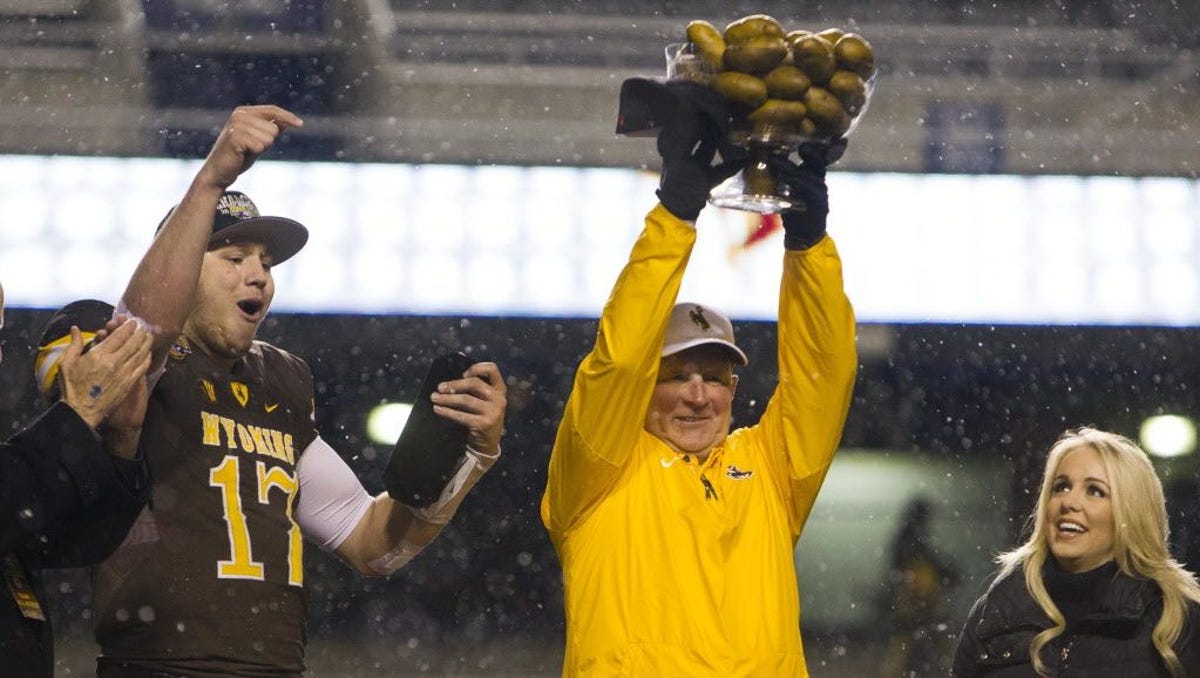No longer do bowl games pay homage to commodities prominent in the hosting city. Many are designated with abstract ideas, product names or whatever a “Gasparilla” is. Even classic bowls with heritages dating back over a century have taken on corporate sponsors. The Orange Bowl is now known as the Capital One Orange Bowl, while even the famous Rose Bowl is officially branded the Rose Bowl Game presented by Northwestern Mutual. Some names have become so outrageous that they require no such explanation: The Makers Wanted Bahamas Bowl; the FBC Mortgage Cure Bowl; the Tropical Smoothie Cafe Frisco Bowl; and the granddaddy of them all, the Bad Boy Mowers Gasparilla Bowl.
However, something you may not have considered is who pays to put on these bowls. And who gets to keep any profits that the games generate? It is not the company that pays for the title sponsorship of each game, nor are they operated by the NCAA or any athletic conferences. Many of the older bowls are managed by non-profit entities that are entirely focused on managing the logistics of its respective game. These non-profits were established by local civic organizations, for the purpose of promoting tourism. However, of the 40 FBS bowls, 17 are owned by for-profit companies. The National Championship Game is owned by the College Football Playoff Administration LLC, an entity held by the 10 FBS athletic conferences and Notre Dame. Three bowls (the Pinstripe Bowl, the Quick Lane Bowl, and the Redbox Bowl) are owned and managed by the professional sports team that plays in that stadium (the New York Yankees, Detroit Lions, and San Francisco 49ers, respectively). The remaining 13 for-profit bowls are owned and operated by an obscure subsidiary of ESPN, called ESPN Events.
Although undoubtedly leading to an oversaturation of bowl games, this arrangement is beneficial for all parties involved and possibly saved bowl season as we know it. Many second-tier contests struggle to gain attendance and recoup costs of operations. In some cases bowls are unable to secure financing and go defunct. Recent examples include the Seattle Bowl, Poinsettia Bowl in San Diego and International Bowl in Toronto. As a result of ESPN ownership, many less prestigious bowls in smaller cities, including the Bahamas Bowl, Birmingham Bowl and Famous Idaho Potato Bowl, are able to remain financially solvent.
ESPN benefits because it gets free broadcast rights to compelling live television. Even these undisputed second rate bowl games receive solid live viewership. According to Nielsen television data, all but three of the ESPN bowls received over a million live viewers. Even the lowest rated bowl, the Bahamas Bowl, received a respectable 838 thousand live viewers, especially considering that it aired on a Wednesday night. For ESPN, these bowls are prime programming that does not require expensive broadcast contracts. In 2018 ESPN, ESPN 2 or ABC (all of which are owned by the Walt Disney Company) broadcast 36 out of the 40 bowl games. Additionally, ESPN is able to retain any profits if any of the games happen to break even.
This arrangement is also beneficial for regional nonprofits that are ceding ownership over to ESPN. ESPN Events is much more experienced at managing the games and bring an economy of scale to the operation. The non-profit organizations, often regional tourist boards, are able to ensure that the games continue to operate and remain in the region. ESPN Events is contractually obliged to include the name of the city in the TicketSmarter Birmingham Bowl, as well as include a certain amount of advertising promoting the city’s tourism industry.
Lastly, the universities and football programs benefit from the abundance of postseason bowl games. Due to the large number of slots, mediocre teams get to salvage their season on national television. In the past few years, six win and even a few five winning teams have been able to squeeze into a bowl game. Athletic conferences, especially power five conferences, are able to pad the number of programs that compete in a bowl. This year, the ACC has ten teams competing in bowls, while the Big Ten and the SEC each have nine teams playing in a postseason game.
At the dismay of bowl game purists, it looks like the saturation of middling postseason games will continue to grow for the foreseeable future. ESPN Events already has plans to create two new bowls that will commence next year: the Myrtle Beach Bowl in Conway, South Carolina and the Fenway Bowl in Boston, Massachusetts. The former will be entirely owned by ESPN Events, while the latter is a joint venture between the subsidiary and FSM, the ownership group of the Boston Red Sox and Liverpool F.C.
ESPN Events is even trying to export this successful business model to other sports. Recently, they have begun operating a number of preseason NCAA basketball tournaments, including the Champions Classic in Madison Square Garden, Phil Knight Invitational in Oregon, the Wooden Legacy tournament in Anaheim and the Orlando Invitational, held at Walt Disney World’s Wide World of Sports. ESPN Events also operates the St. Pete/Clearwater Elite Invitational, a collegiate softball tournament held in February each year. As these events prove to be popular and profitable, ESPN Events will continue to expand their collegiate operations.

 RSS Feed
RSS Feed
